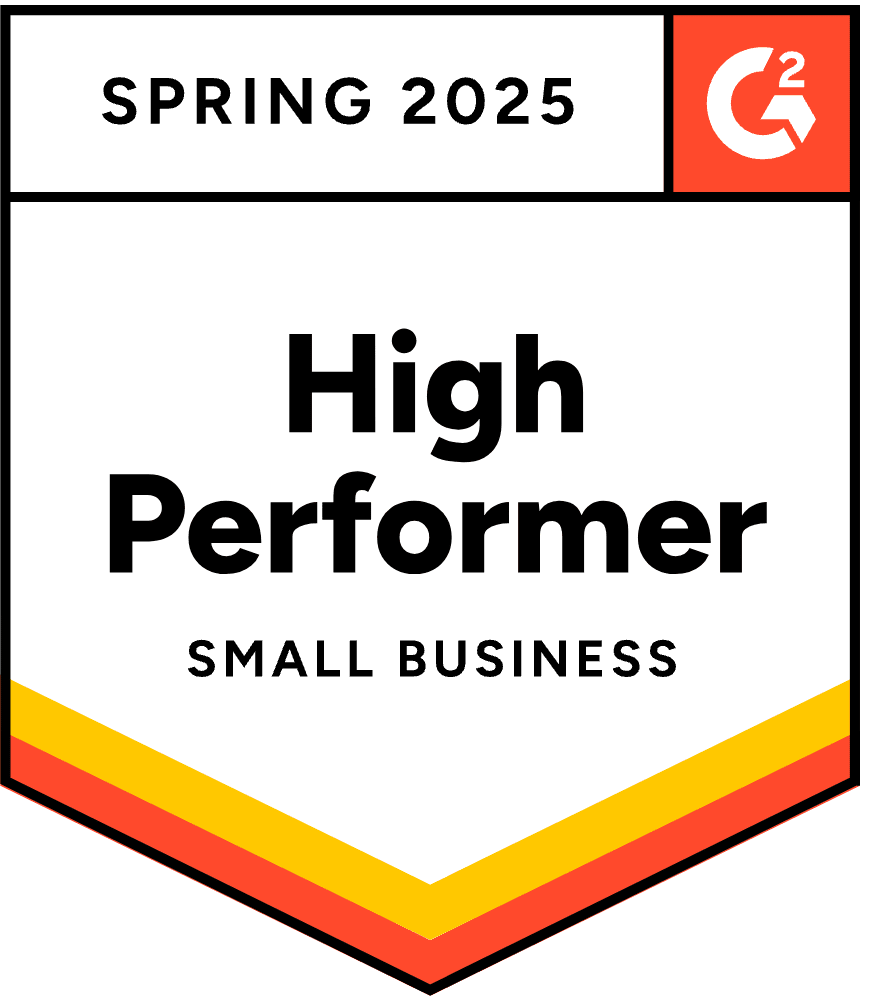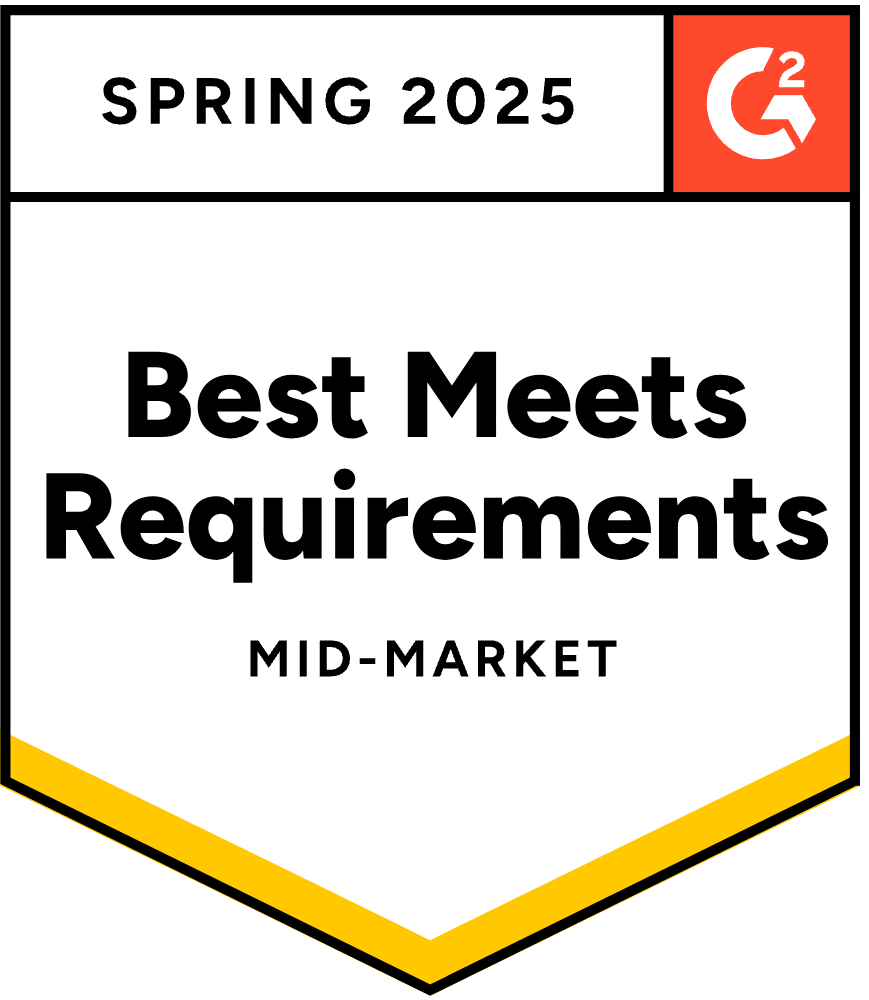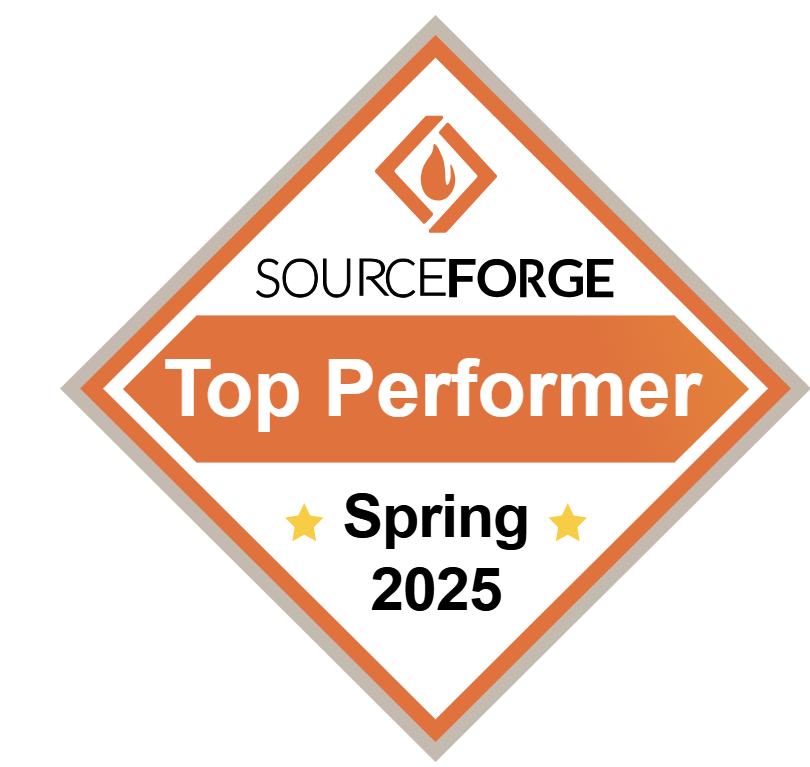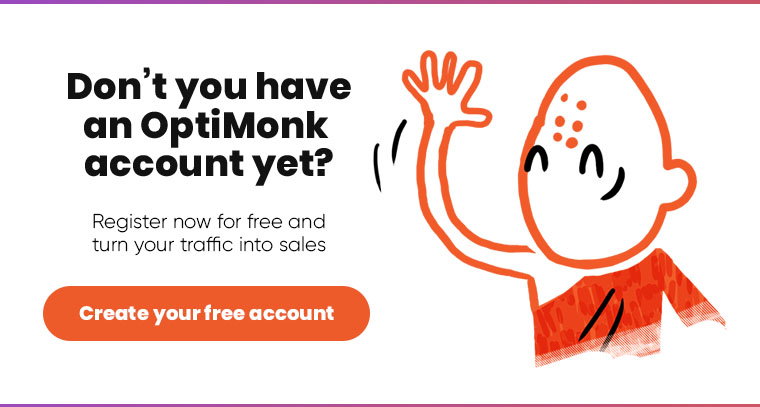- Blog
- Top 10 Conversion Rate Optimization Tips for Shopify
Top 10 Conversion Rate Optimization Tips for Shopify
-
Nikolett Lorincz
- Conversion
- 6 min read
Table of Contents
Are you struggling with low conversion rates? Want to increase conversions in your Shopify store? You’ve come to the right place.
Welcome to our guide on Shopify conversion rate optimization!
We’ll start with the basics of conversion rate optimization, and then share our top 10 conversion rate optimization tips specifically tailored for Shopify merchants like you.
Let’s jump in!
What is conversion rate optimization?
Conversion rate optimization (CRO) is the process of tweaking your website or app to increase the percentage of website visitors who take a desired action. In ecommerce, this action is usually making a purchase.
CRO is all about making the most of the traffic you already have. By improving your conversion rate, you get more bang for your buck.
It involves testing different elements of your online store—like headlines, images, buttons, or even the layout—to see what works best.
It’s like experimenting with different ingredients to see which combination makes the perfect dish.
The goal is to remove any roadblocks that might be stopping potential customers from taking action.
What is a good Shopify conversion rate?
This is the million-dollar question every Shopify store owner wants the answer to.
By now, you know that the conversion rate is the percentage of visitors who end up making a purchase on your Shopify store… but what’s considered a “good” conversion rate?
Well, the average conversion rate for Shopify stores is 1.3%. However, conversion rates vary depending on factors like industry, target audience, and product type.
According to recent data, top-performing Shopify stores can achieve 3-5% conversion rates or even higher.
But don’t panic if you’re not hitting those numbers yet! Every ecommerce store is different, and there’s always room for improvement.
Focus on understanding your target audience, optimizing your online store, and testing different strategies to boost your store’s conversion rate.
Remember, it’s not just about aiming for a specific number. It’s about continuous improvement and striving to do better than before.
How to calculate your conversion rate?
Calculating your conversion rate is easier than it sounds.
Here’s a simple breakdown:
- First, count how many visitors your Shopify store gets in a specific time frame, like a week or a month. This will be your total number of visitors.
- Next, tally up how many of those visitors make a purchase during that same period. That’s the number of conversions.
- Then, divide the number of conversions by the total number of visitors.
- Finally, multiply by 100 to get your conversion rate percentage.
For example, if you had 1,000 visitors and 20 of them made a purchase, your conversion rate would be 2%.

You can use online tools or Shopify’s built-in analytics to track these numbers automatically.
Keep in mind that conversion rates can fluctuate, so it’s essential to track them regularly and look for trends over time.
How to optimize your conversion rate?
If you’re just getting started with Shopify conversion rate optimization, there are three main areas you need to focus on:
- Home page: Your homepage is like the front door to your Shopify store. It’s the first thing visitors see, so make sure it’s inviting and easy to navigate. Use clear, compelling imagery, concise headlines, and strategic calls-to-action to guide visitors towards making a purchase.
- Category pages: Category pages help visitors quickly find what they’re looking for. Make sure your category pages are well-organized and user-friendly. Remember, the goal is to make the shopping experience as seamless as possible.
- Product pages: Your product pages are where the magic happens—this is where visitors decide to buy. Optimize your product pages by providing detailed product descriptions, high-quality product images, and persuasive calls-to-action. Highlight key features and benefits to help visitors understand the value of your products.
By focusing on these three key areas—home page, category pages, and product pages—you can optimize your Shopify store for maximum conversions.
Top 10 Shopify conversion rate optimization tips
Now, let’s take a look at our top 10 tried-and-tested Shopify conversion rate optimization tips that will help you boost your online sales.
1. Encourage customers to buy with a discount popup
Offering a discount to first-time visitors in exchange for their email addresses is a popular marketing strategy used by many successful ecommerce companies.
Check out this example from Bubble Skincare:
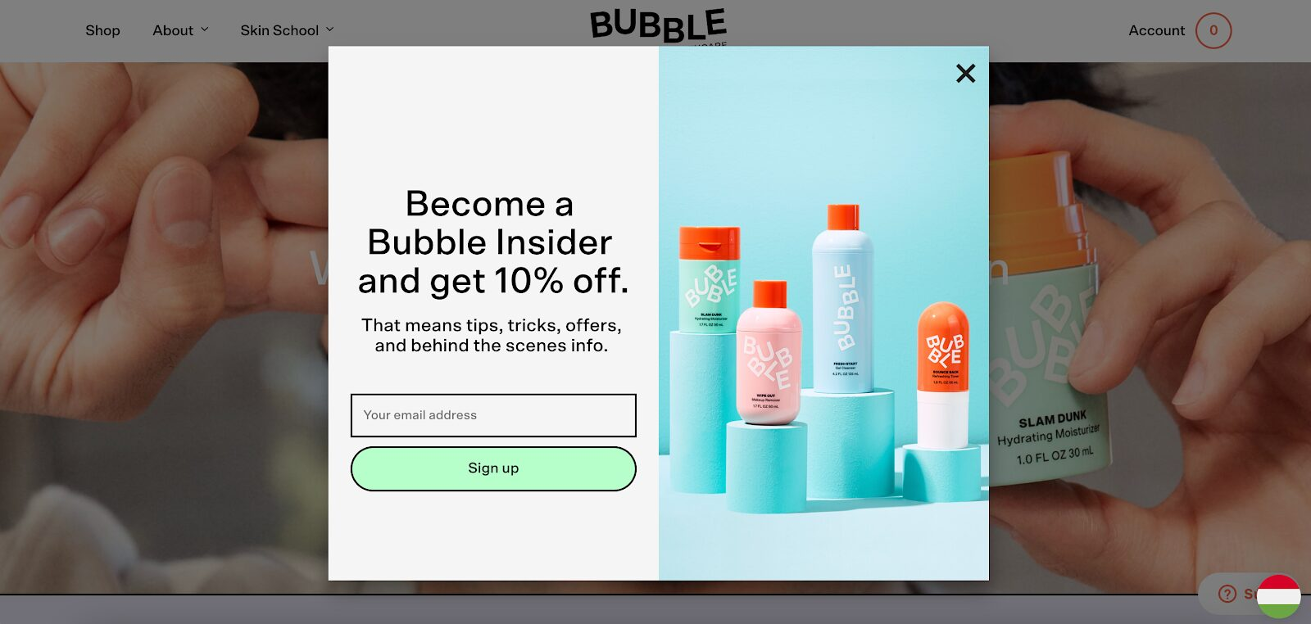
But since everyone’s doing it, people are getting used to it. This makes basic discount pop-ups (like the one above) less effective.
If you want to achieve the best results with your discount pop-ups, follow this formula:
- Use a multi-step popup that starts with a simple Yes/No question
- Trigger your popup on exit intent
- Make sure it looks good on mobile devices
- Incorporate trust-building elements (reviews or badges)
- Delay the closing “X” button by a few seconds
- Use a unique discount code instead of generic codes
- Display product recommendations on the thank you page
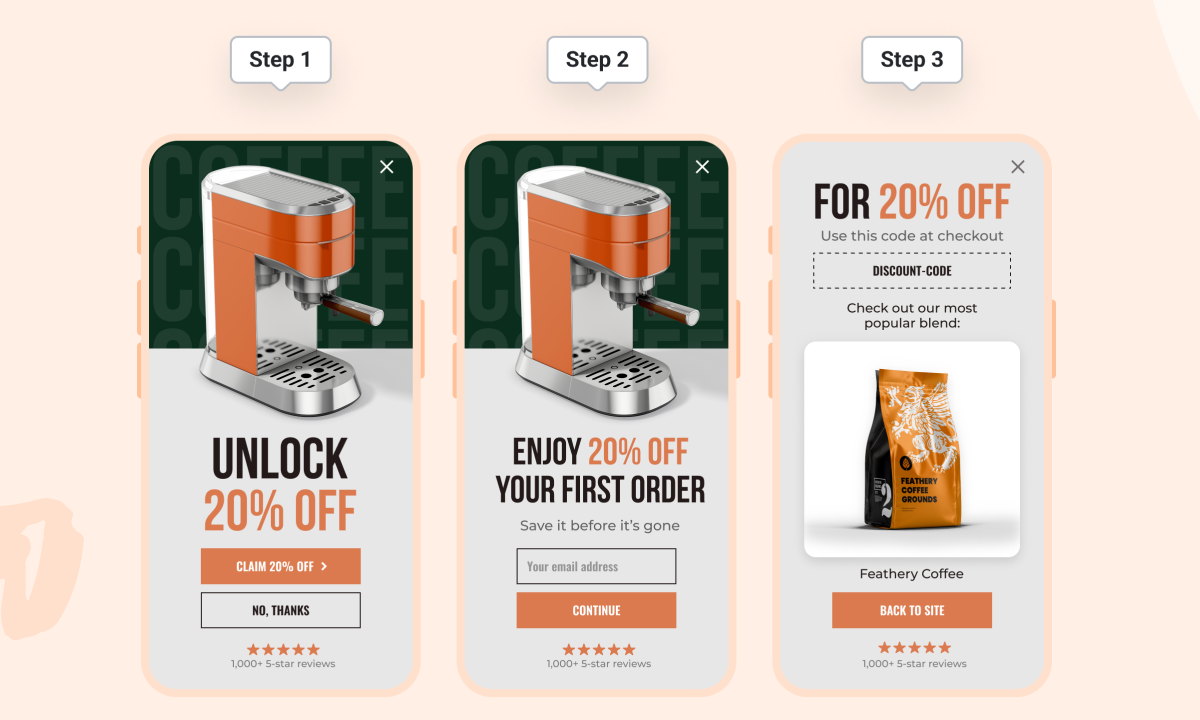
2. Remind returning visitors where they left off
Do you have lots of returning visitors in your Shopify store?
You’re not alone. People rarely buy from ecommerce sites on their first visit—especially if they’re shopping for more expensive products.
They probably want to check out other options, compare products, and consider their decision carefully. But that doesn’t mean that they won’t return to buy from you later.
When they do, you should show them a welcome popup reminding them about their previously viewed products. This way, they can continue browsing with a single click.
This strategy will increase conversions of returning visitors immediately.
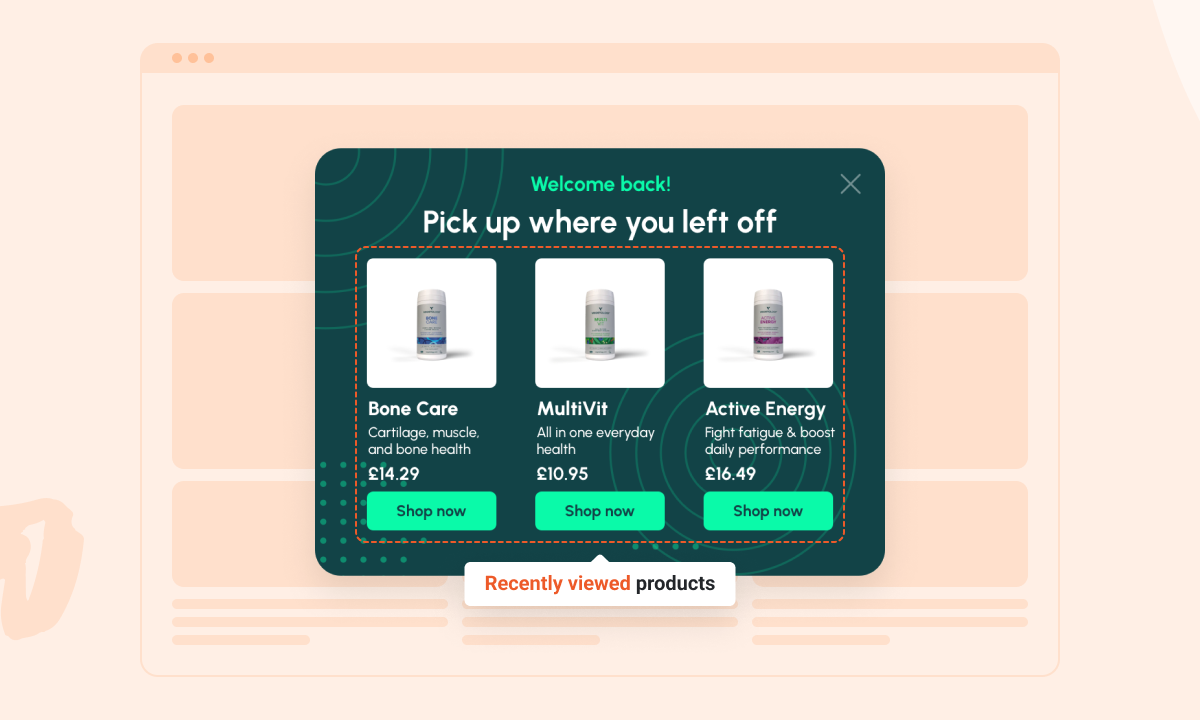
Use these Browsing Reminder templates to get started with this strategy:
3. Grow your email list & segment visitors at the same time
Getting your potential customers’ email addresses is super important for marketing purposes.
But just sending out generic newsletters doesn’t cut it anymore. You’ve gotta step it up with personalized messages.
How? Try using segmentational popups that ask questions to sort people into different groups!
Ask important questions in the second step of your email popup. Then, you can split your email list into different segments based on their answers and send them emails that speak to them.
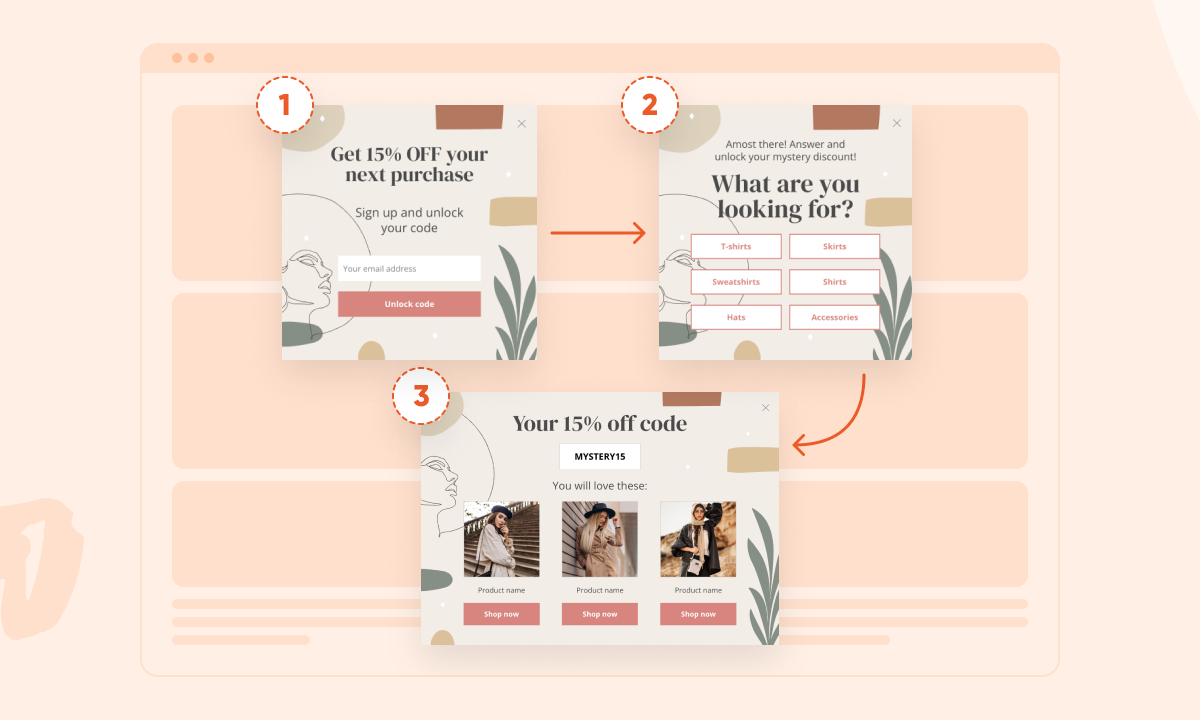
Want to segment your email list? Try these ready-to-use templates:
4. Recommend relevant products in blog posts
If your blog posts aren’t helping you make sales, try embedding some product recommendations.
Integrating product recommendations within your blog articles can help guide visitors towards things they might like. This could keep people interested and increase conversions.
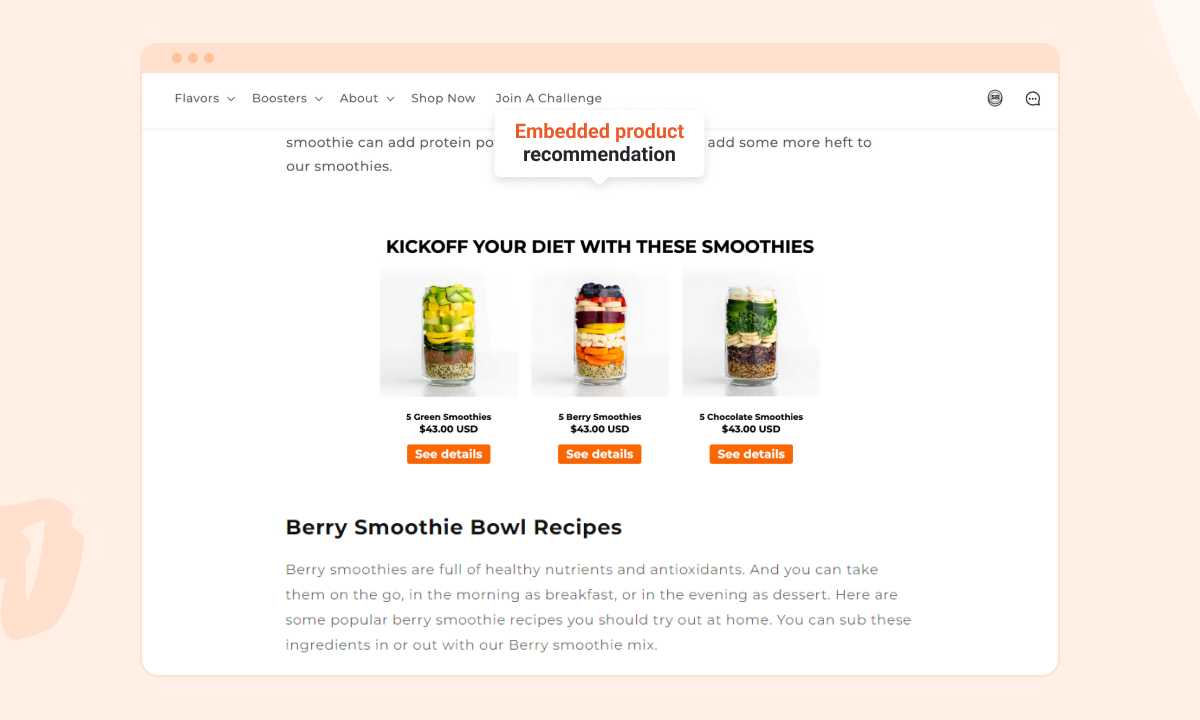
5. Remind users about their coupons
When you hand out coupon codes to new customers to drive more sales, you want them to actually use them, right? One neat trick is to create a follow-up sticky bar.
This sticky bar stays at the top or bottom of the page, reminding users about their available coupons. It’s like a gentle nudge, saying, “Hey, don’t forget about your discount!”
When people see the reminder, they’re more likely to use their coupons. And when they use coupons, they buy stuff—so your conversion rates go up!

Get started with these Discount Reminder sticky bars:
6. Promote a free shipping threshold based on cart value
Ever tossed in an extra item just to snag free shipping? You’re not alone. 9 out of 10 consumers say free shipping is the topmost incentive to shop more online.
It’s clear that offering free shipping is a great incentive if you want to boost conversions.
Use sticky bars to let customers know when they qualify for free shipping. By promoting your free shipping thresholds dynamically based on cart value, you can not only boost conversion rates but also incentivize larger purchases.
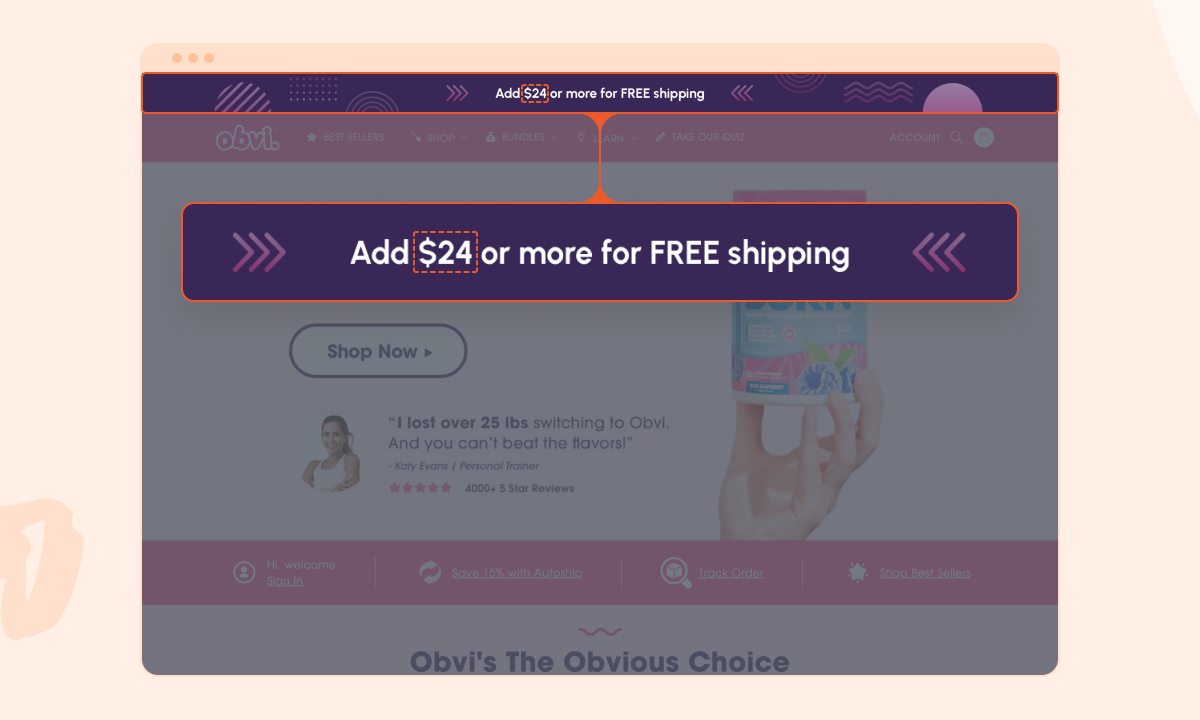
7. Spotlight the most relevant products on exit-intent
Got lots of people checking out your products but leaving without buying? Try showing them more cool stuff right before they leave.
Why does this strategy work so well for boosting conversion rates?
- Offer more than just discounts: Not all customers are looking for a discount. This popup keeps them interested with something more personal than simple price cuts.
- Inspire, don’t push: Show customers how your products make their lives better with a personalized headline, instead of just pushing for a quick sale or sign-up. This will increase customer satisfaction.
- Give tailored suggestions: Automatically suggest products that fit what customers search for, based on their browsing behavior and preferences.
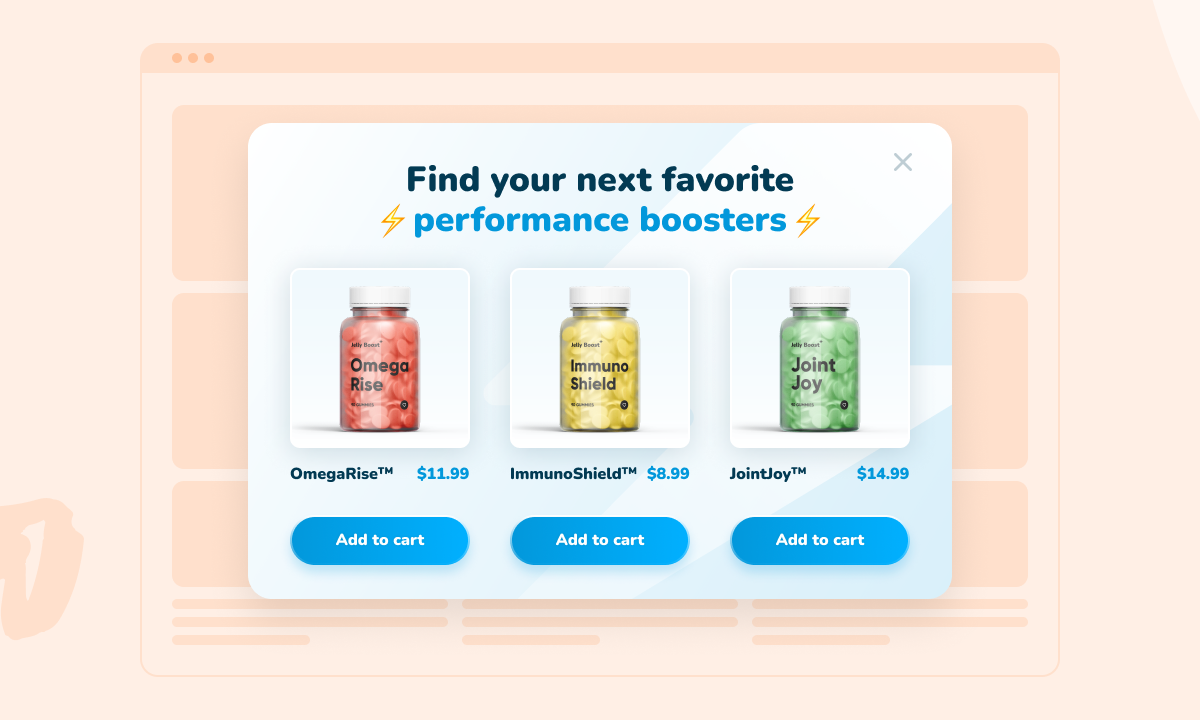
8. Boost product pages with AI-optimized copy
Feeling overwhelmed with your product pages? Do you have a ton of them, but no time to optimize them?
Don’t sweat it. Here’s where AI steps in. OptiMonk’s Smart Product Page Optimizer takes a load off your shoulders. It’s like having a virtual assistant for your website.
You can upgrade your product pages at scale with AI-powered, personalized, benefit-driven copy.
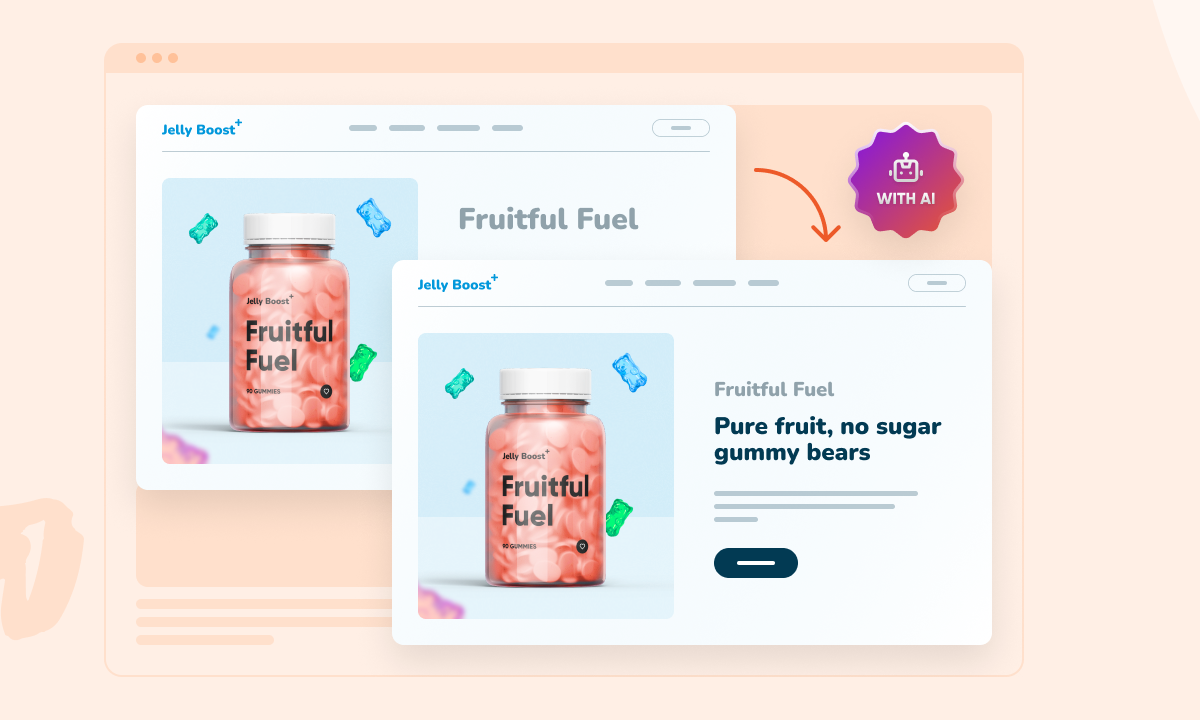
Here’s an example from Mounteen. They used the Smart Product Page Optimizer to:
- Add a bold, catchy slogan at the top of each product page to grab visitors’ attention.
- Add a clear, benefit-driven subheadline below the slogan to showcase the value proposition.
- Highlight the main product benefits with a bulleted list in the above-the-fold section so visitors can instantly see how the product addresses their challenges or enriches their lives.
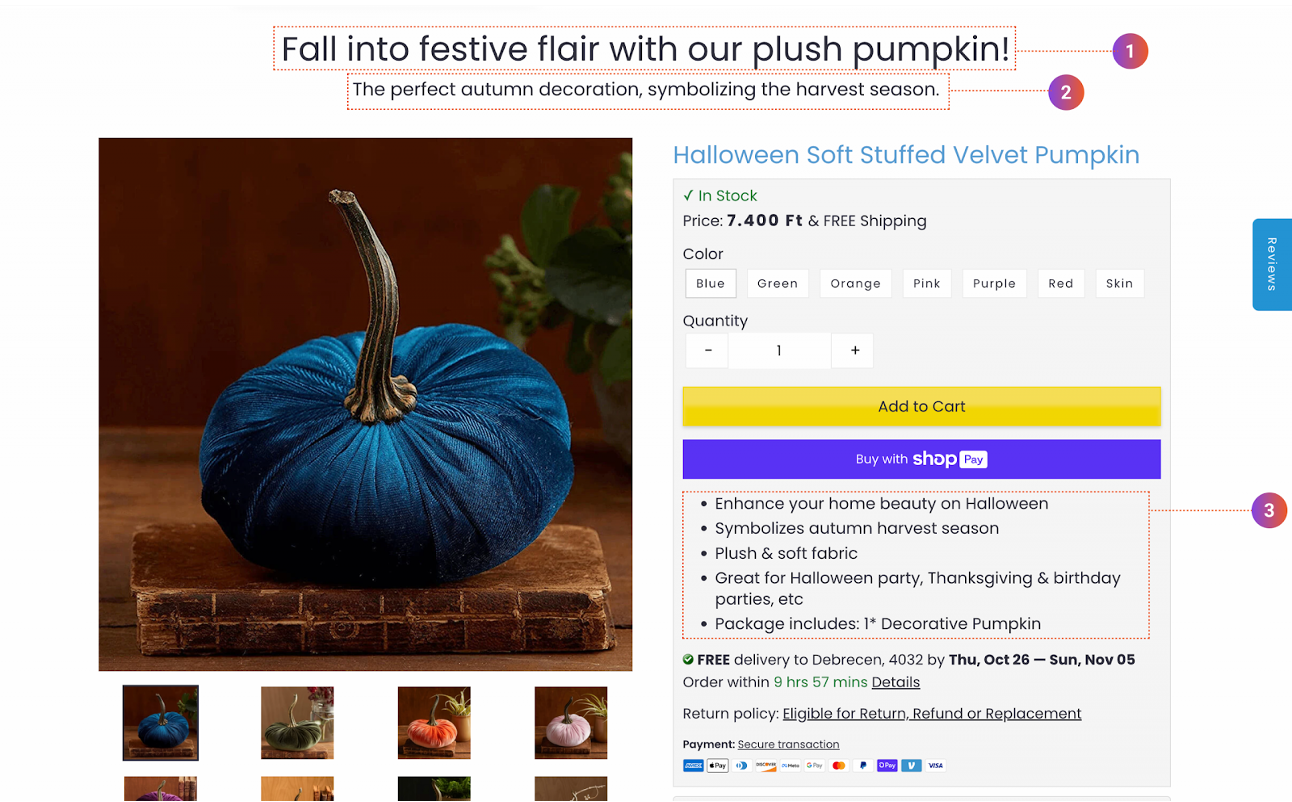
And they did this on hundreds of product pages with just a few clicks. This helped increase their revenue by 18%.
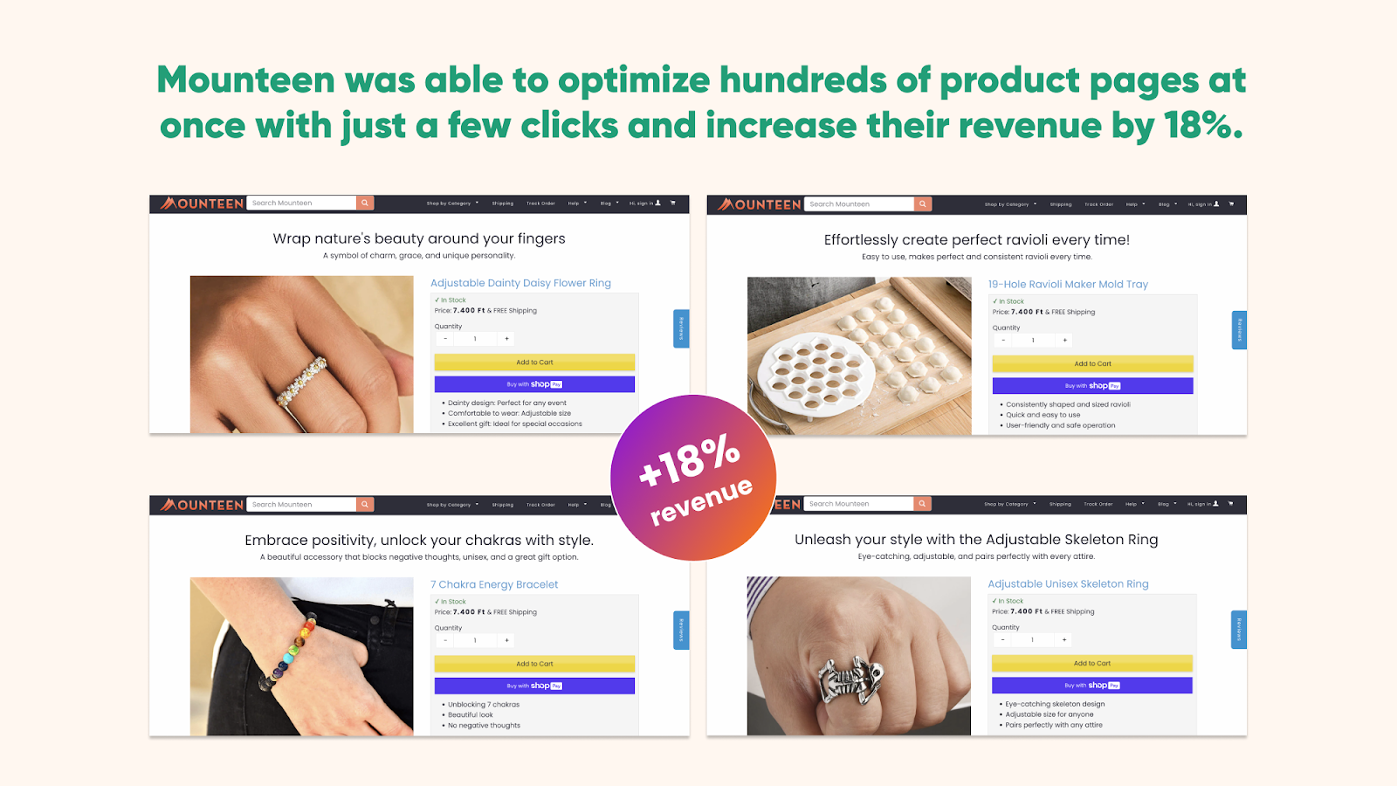
9. Perfect your homepage with AI-powered A/B tests
Fine-tuning your homepage’s message is one of the best ways to increase conversions in your Shopify store.
Want proof? Bukvybag achieved a 45% increase in orders thanks to running A/B tests on their homepage and improving the unique selling proposition.
To make A/B testing easy, you can conduct fully automated, AI-assisted A/B testing.
With OptiMonk’s Smart A/B Testing feature, you just pick the elements on your website you want to test and let our AI do the rest of the job. It will create better headlines and descriptions, and then automatically test them against the control variant.
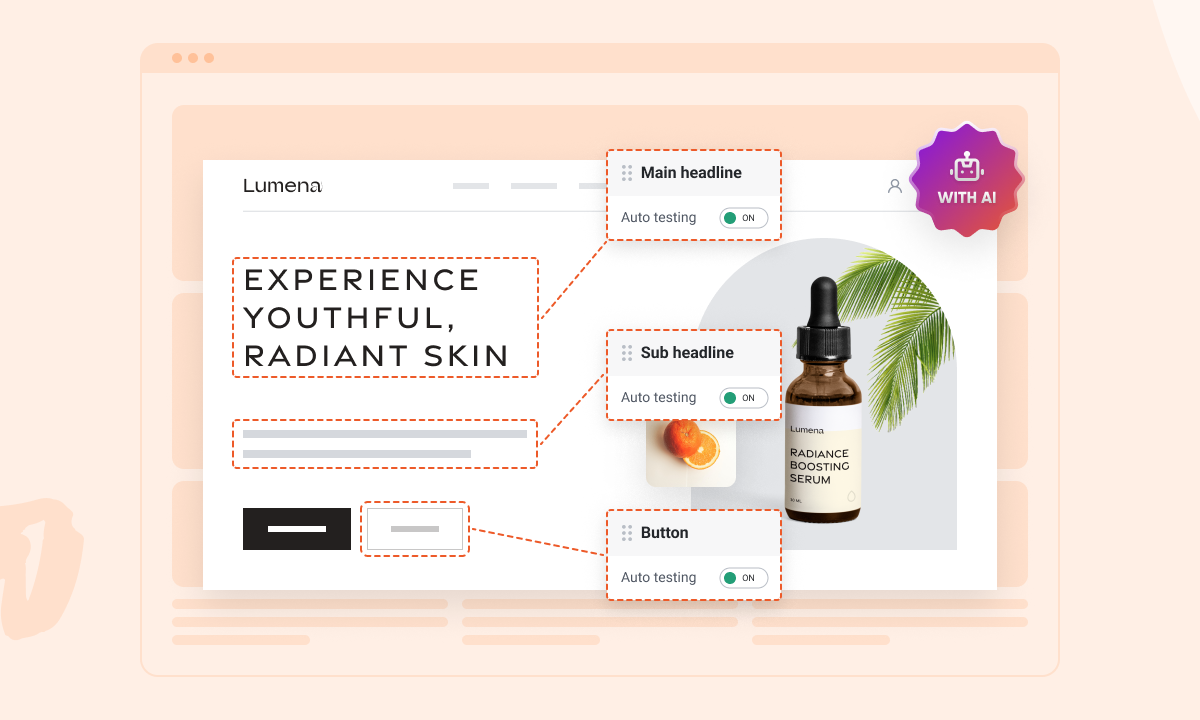
10. Tailor landing page headlines to match your ads
Are you running multiple Facebook or Instagram ads with different copy, value propositions, or designs? Are they all leading to the same landing page?
Here’s a great strategy you can use to increase conversions: personalize your landing page copy and value proposition to match each ad’s unique content. That means tailoring the text and value proposition to echo each ad.
When people click on an ad and the landing page matches what they saw, they’re more likely to stick around and maybe even buy something.
This will improve your Shopify conversion rates and your Facebook ad ROI.
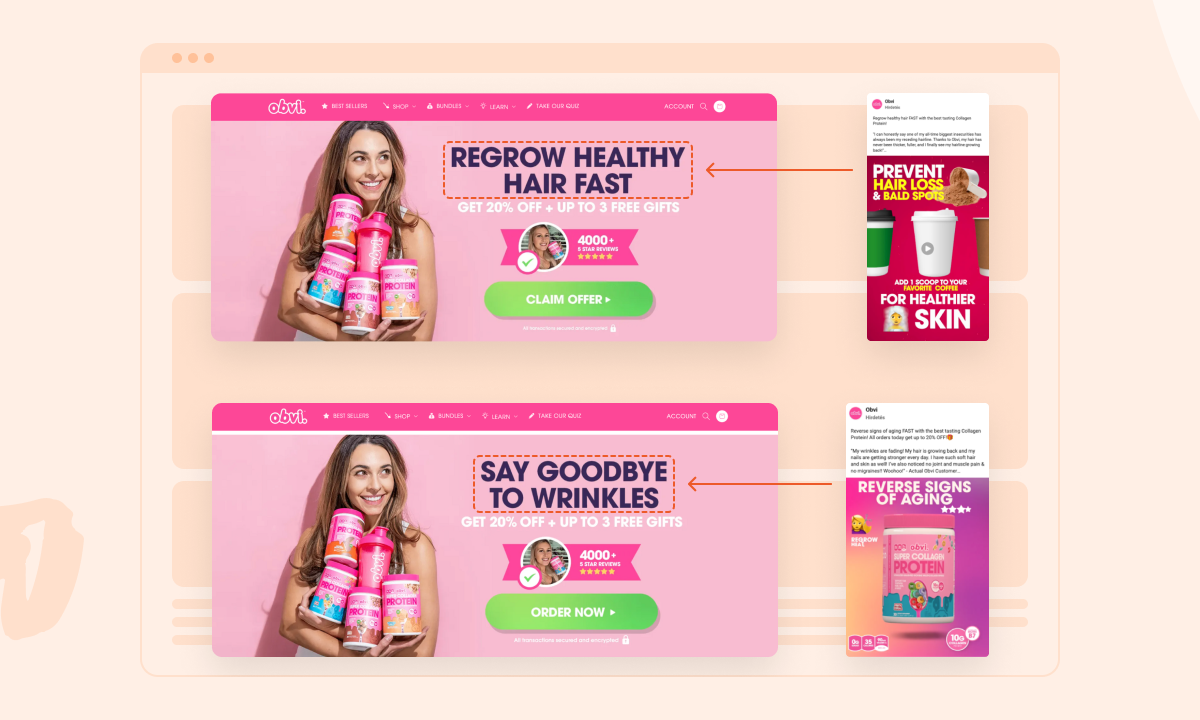
Top 5 CRO tools for Shopify
Now that we’ve explored some key strategies for optimizing conversions in your Shopify store, let’s dive into the top 5 Shopify apps that can help you with conversion optimization.
1. OptiMonk
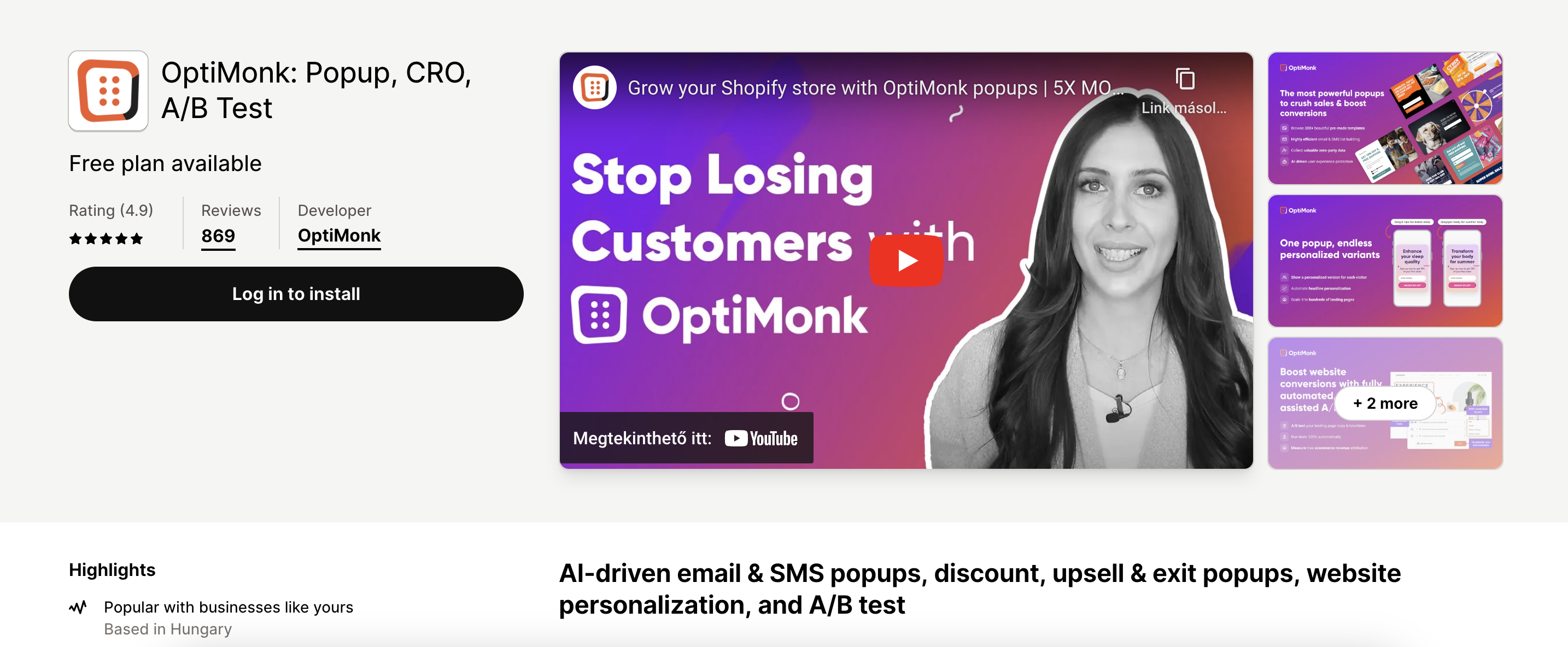
Reviews: 800+ five-star reviews
Pricing: Free plan available. Paid plans from $29/month.
OptiMonk is an all-in-one CRO toolset that provides popups, website personalization, and A/B testing.
It’s built for ecommerce marketers and agencies looking for quick and affordable solutions to boost the performance of their campaigns and landing pages.
OptiMonk offers easy-to-use solutions that can help you boost sales in three ways:
- Smart ecommerce popups help you build your lists faster, decrease cart abandonment, and grow your ecommerce sales like never before.
- Website personalization features allow you to easily tailor your website and campaign landing page messaging to shopper segments for more relevant and meaningful experiences.
- Easy-to-use A/B testing lets you quickly set up, test, and compare popup and landing page performance. Additionally, you can compare complete shopper journeys to measure the impact on your bottom line.
2. Visually
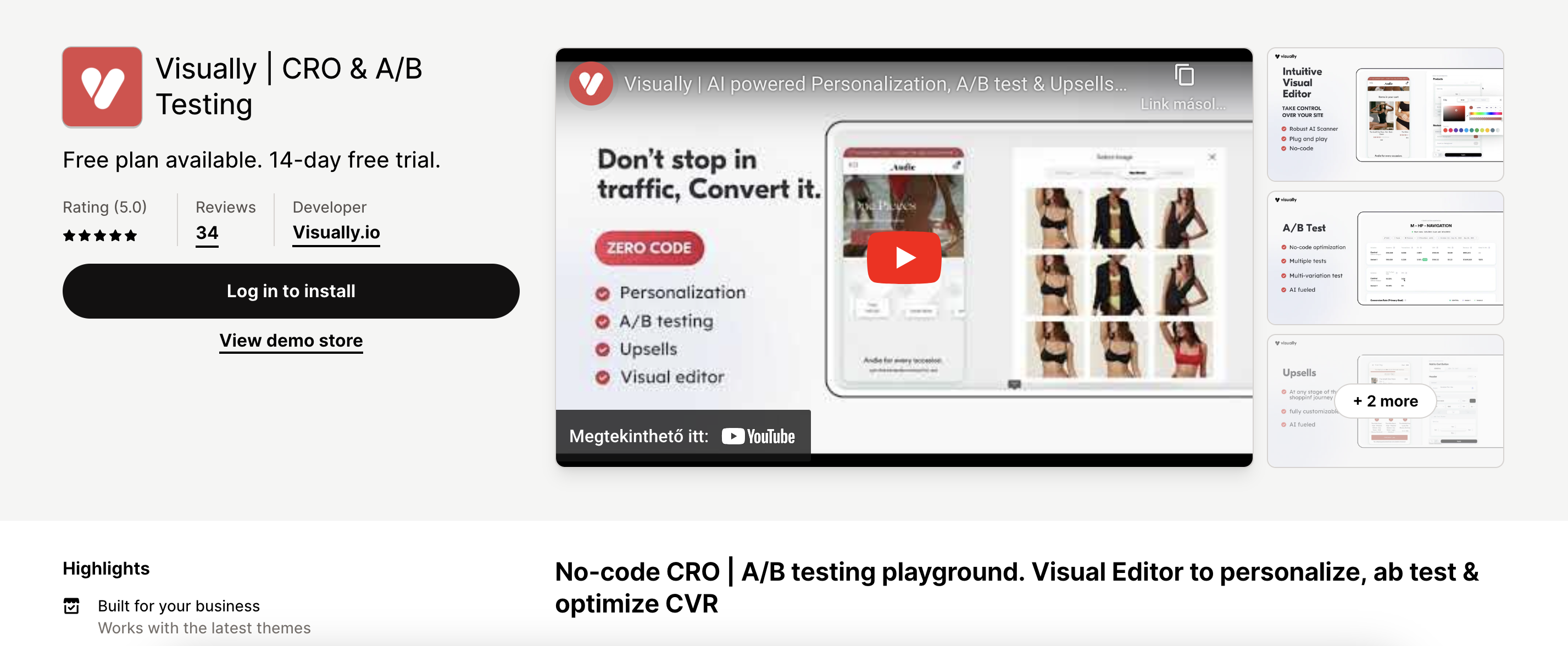
Reviews: 30+ five-star reviews
Pricing: Free plan available. Paid plans from $19/month.
Visually is another great tool for increasing conversion rates on Shopify.
With Visually, you can customize pages, personalize product recommendations, and upsell items, all while constantly testing what works best through A/B testing.
It’s all about making smarter decisions to boost your conversion rates. With Visually, you can run tests on everything from your homepage to product detail pages and checkout flows.
3. Salesfire
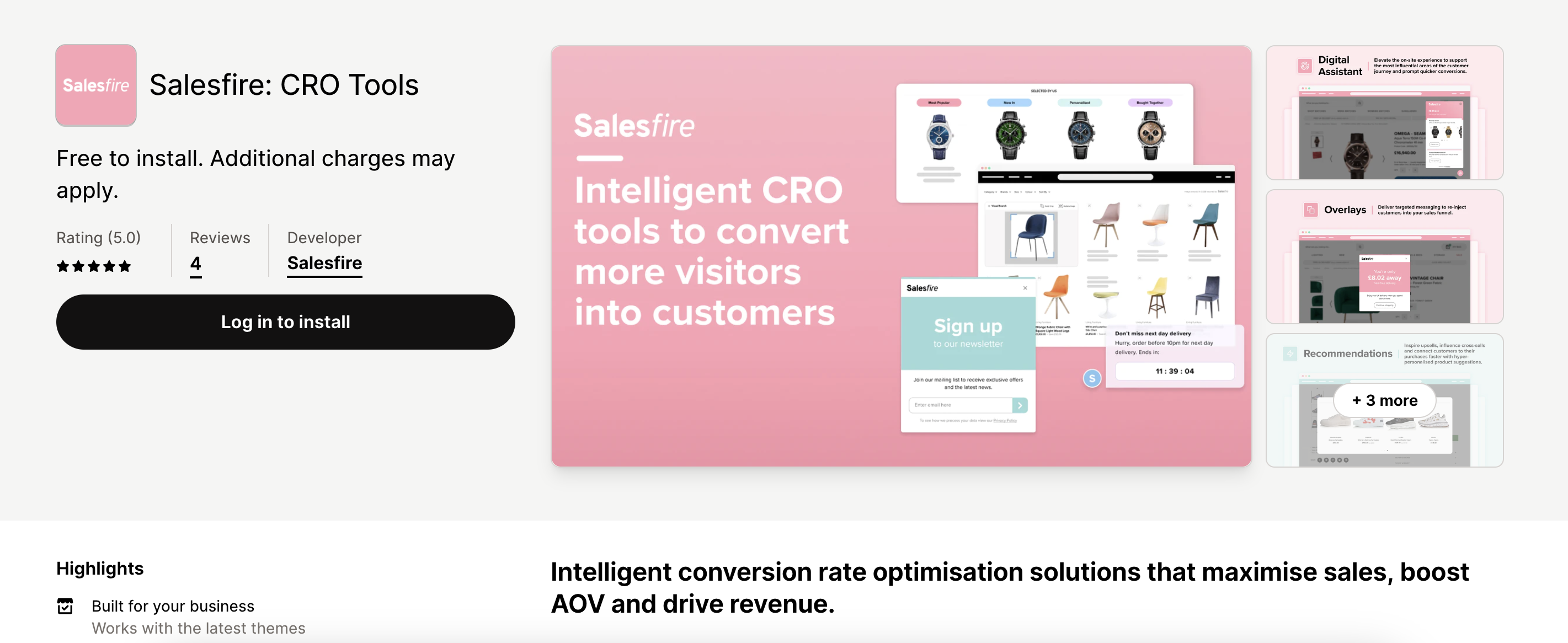
Reviews: 4 five-star reviews
Pricing: Free to install. Yearly license for some additional features based on average monthly pageviews.
Salesfire is all about making every step of the customer journey count.
With their suite of solutions, you can supercharge product discovery, offer personalized experiences, and turn more visitors into buyers.
Using detailed data, insights, and AI, Salesfire makes it easy to integrate their app with ecommerce websites.
4. CRO Buttons
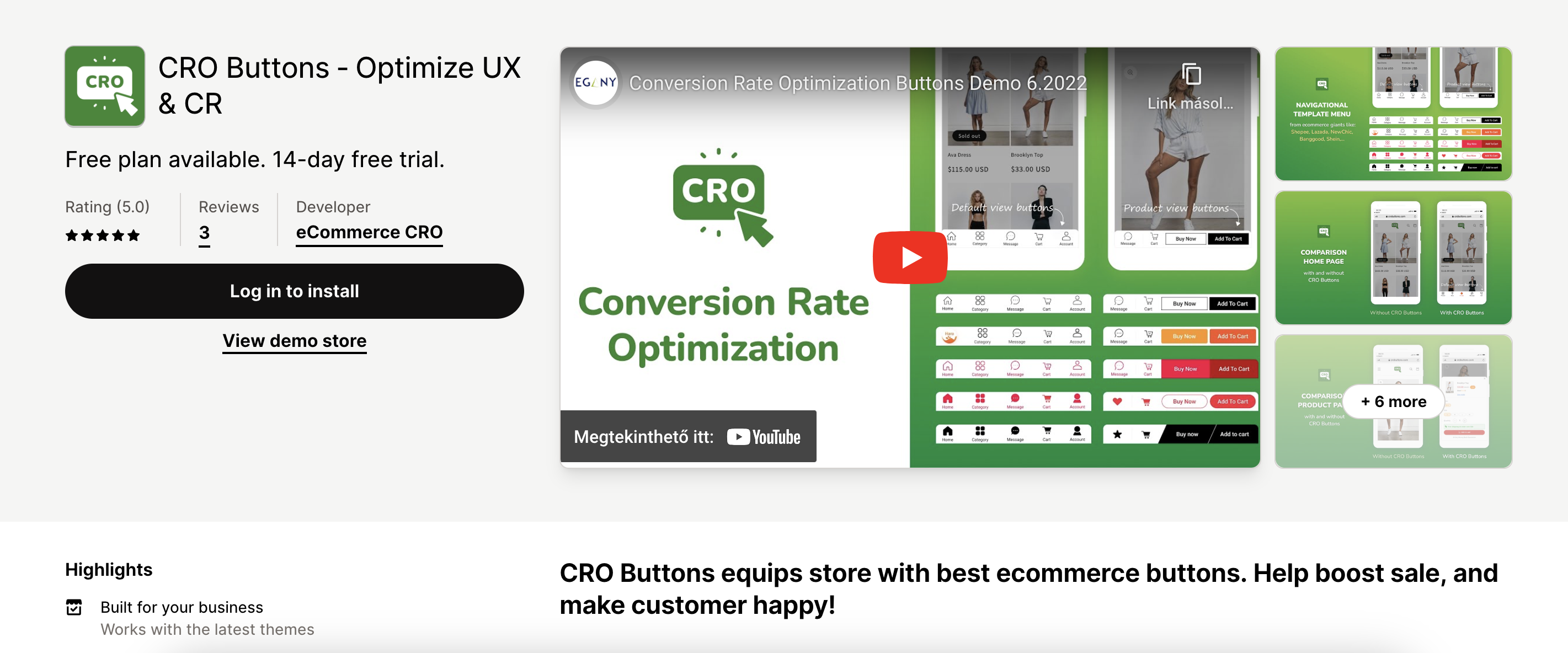
Reviews: 3 five-star reviews
Pricing: Free plan available. Paid plans from $4.90/month.
CRO Buttons is a great tool for making your Shopify store more shopper friendly and increasing sales.
With their mobile menu feature, customers can easily navigate ecommerce stores, boosting both sales and engagement.
With CRO Buttons, shopping is a breeze—customers can compare products and add favorites to their cart with just a few clicks. It’s all about making the shopping experience smooth and enjoyable for everyone.
5. Dialogue
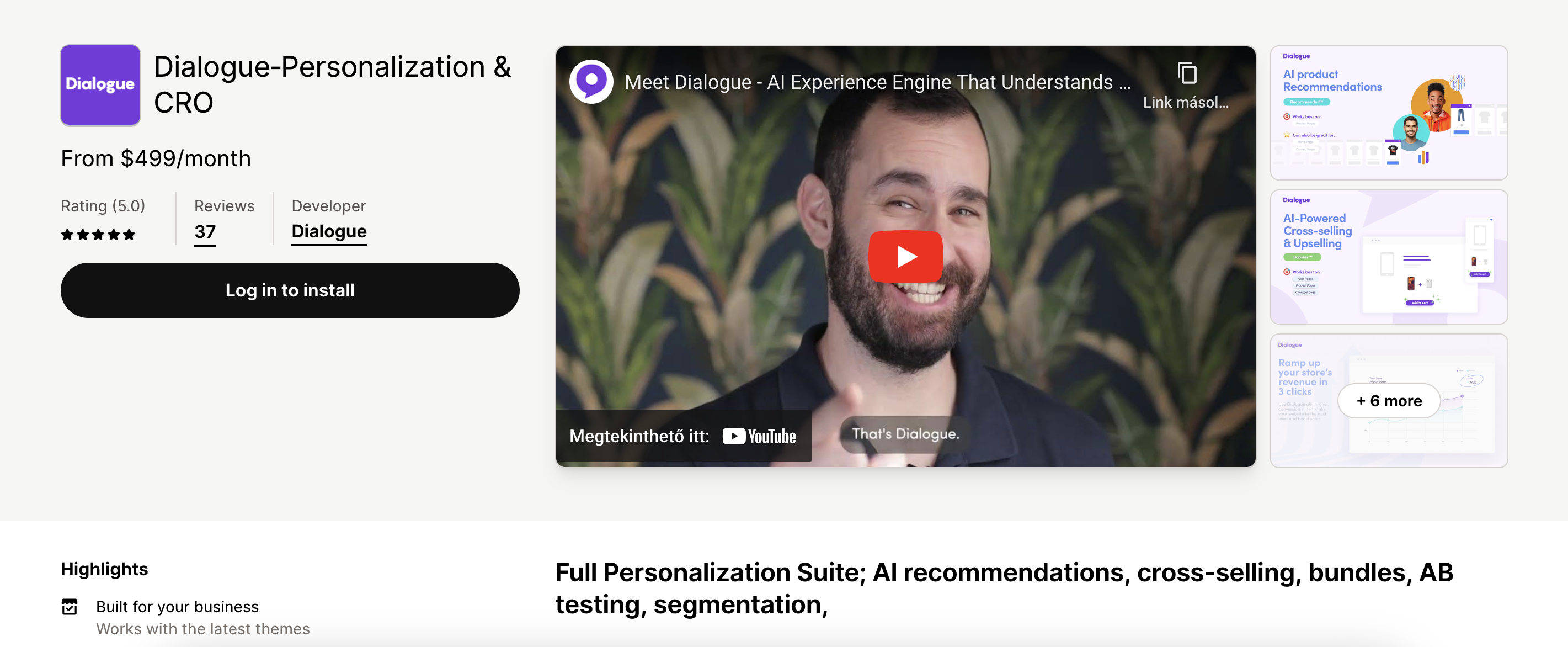
Reviews: 30+ five-star reviews
Pricing: From $499/month.
Dialogue is your secret weapon for boosting conversions in your Shopify store. This AI-powered personalization tool lets you customize the shopping journey for every visitor.
With Dialogue, you can create personalized recommendations, segment your customers, and implement upselling and cross-selling strategies effortlessly.
Plus, launching targeted campaigns and generating engaging content is a breeze.
FAQ
Why is my Shopify conversion rate low?
Several factors can contribute to a low Shopify conversion rate. Common reasons include poor website design or user experience, a complicated checkout page, lack of trust signals such as customer reviews or security badges, and targeting the wrong audience.
How do you optimize conversion rate?
Optimizing your conversion rate involves several marketing strategies, including improving website design and user experience, improving product descriptions, using high-quality product images, simplifying the checkout page, implementing A/B testing to compare different versions of your website, and continuously analyzing data to identify areas for improvement.
Is conversion rate optimization worth it?
Yes, conversion rate optimization is definitely worth it for Shopify store owners. By improving your conversion rate, you can maximize the value of your existing traffic, increase sales and revenue, and ultimately grow your ecommerce business. While conversion rate optimization requires time and effort, its benefits far outweigh the investment, making it a worthwhile strategy for all ecommerce businesses.
Wrapping up
Shopify conversion optimization is crucial for driving sales and growing your business.
If you want to improve the user experience, increase engagement, and boost your revenue, implement the top 10 conversion rate optimization tips we’ve shared in this article.
Remember, conversion rate optimization is an ongoing process that requires continuous testing, analysis, and improvement.
By focusing on key areas (like your homepage, category pages, and product pages) and leveraging AI-powered tools like OptiMonk, you can maximize your ecommerce website’s potential and achieve long-term success.
Migration has never been easier
We made switching a no-brainer with our free, white-glove onboarding service so you can get started in the blink of an eye.
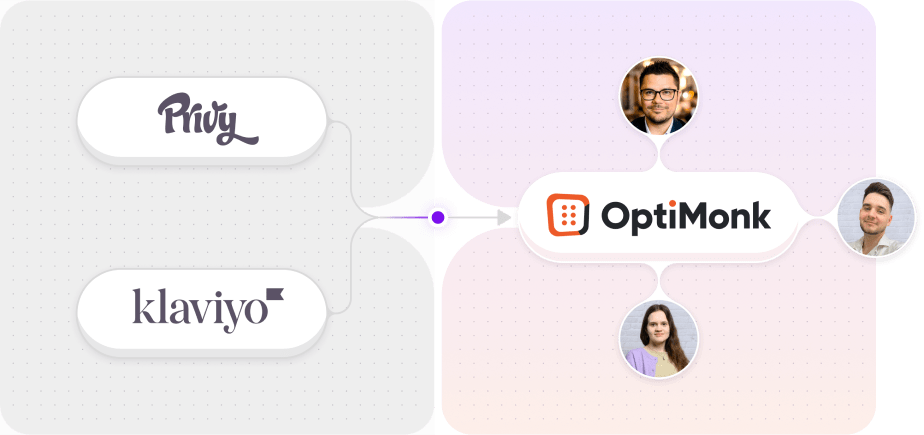
What should you do next?
Thanks for reading till the end. Here are 4 ways we can help you grow your business:
Boost conversions with proven use cases
Explore our Use Case Library, filled with actionable personalization examples and step-by-step guides to unlock your website's full potential. Check out Use Case Library
Create a free OptiMonk account
Create a free OptiMonk account and easily get started with popups and conversion rate optimization. Get OptiMonk free
Get advice from a CRO expert
Schedule a personalized discovery call with one of our experts to explore how OptiMonk can help you grow your business. Book a demo
Join our weekly newsletter
Real CRO insights & marketing tips. No fluff. Straight to your inbox. Subscribe now
Nikolett Lorincz
- Posted in
- Conversion
Partner with us
- © OptiMonk. All rights reserved!
- Terms of Use
- Privacy Policy
- Cookie Policy
Product updates: January Release 2025

